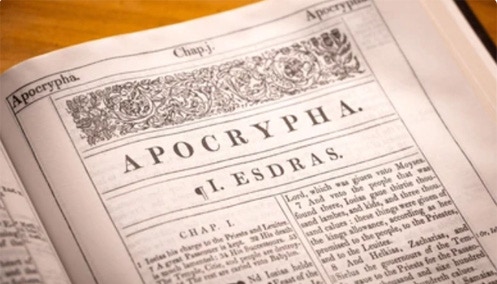


Common Objections
Common Objections
Catholic Outlook
Catholic Outlook

Catholic Outlook
Common Objections
Common Objections
__________ Recent Additions __________
Catholic Outlook
Catholic Outlook
__________ The “Apocrypha” __________
“Not one of these books claims to be inspired.”
Gary Hoge

If we removed all the books from the Bible that didn’t claim to be inspired, we wouldn’t have any left. Although some of the books record the words of God, or the words of his prophets, none of them claims to be entirely written under the inspiration of God.
Most of the New Testament consists of letters written to specific churches to address specific issues, and again, none of them claims to be inspired. Two of the gospels were written by people who never even met Jesus. The author of the gospel of Luke seems to indicate that he wrote it on his own initiative, rather than at the command of God. He wrote, “Therefore, since I myself have carefully investigated everything from the beginning, it seemed good also to me to write an orderly account” (Luke 1:3).
And yet, despite the lack of any internal attestation of inspiration, the Catholic Church affirms the full inspiration of both the New Testament and the Old Testament:
For holy mother Church, relying on the belief of the Apostles (see John 20:31; 2 Tim. 3:16; 2 Peter 1:19-20, 3:15-16), holds that the books of both the Old and New Testaments in their entirety, with all their parts, are sacred and canonical because written under the inspiration of the Holy Spirit, they have God as their author and have been handed on as such to the Church herself. (Dei Verbum, Chapter III, 1965).
This tells us not only that the Church believes that both testaments were written by God, but why she believes that: Because those books “have been handed on as such to the Church herself.” We accept the inspiration of every book in the Bible not because they claim to be inspired, but because the apostolic Tradition tells us they are. And that applies to the deuterocanonical books as well.
Copyright © 2024 Catholicoutlook.me
MENU